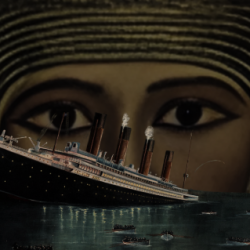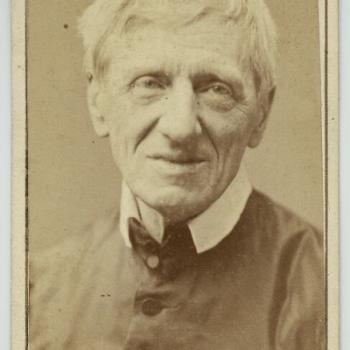College admissions season is wrapping up, and as all the glossy brochures and skinny envelopes get tossed into the recycling bin, prospective students turn from the first big question—where?—to the second big question: what? The choice of college major can be a difficult one, located at the four-way corner of innate capacity, market pressures, institutional ideals, and demographic expectations. The decision can be made on the basis of hard-headed ratiocination; it can float by on a whim; it can bubble up from the depths of intuition or aspiration.
I picked English as my major on the strength of nothing more than the example of an RA whom I admired, and who, I later learned, ultimately changed her major. I stuck with it, though, and then went on to complete a Ph.D. in literature. I don't regret this course, but neither do I feel that it was necessary or inevitable. (Although with a name like Rosalynde, perhaps I was bound to get tangled up in early modern English literature—or molecular genetics—at some point.)
A college major points toward a career path, of course, but it does far more than that. It conveys a habit of mind, a social milieu, often a political persuasion, and always a kind of worldview. And these intellectual endowments can have real effects on behavior, entirely outside the world of work and career.
College major appears, for instance, to have a measurable effect on college students' levels of religiosity. This is the finding of a paper published several years ago by lead researcher Miles Kimball of the University of Michigan. College students who major in education are likely to become more religious during the 5-6 years after high school, measured in terms of their frequency of attendance at religious services and the self-reported importance of religion in their lives. Students majoring in biology and the physical sciences remain about as religious as they were when they started college. But students majoring in the social sciences and the humanities are likely to become less religious over the course of their college experience.
These findings might surprise, at first, particularly the discovery that academic training in the hard sciences does not appear to erode religiosity. The most prominent figures of the new popular atheism are, after all, popstar-scientists like Richard Dawkins and Sam Harris, and it would seem reasonable that their anti-religion views grew out of—or anyway have trickled down through—the world of academic science they come from. But it appears, on the contrary, that it is the humanities and the social sciences that weaken college students' religious participation and religious worldviews. (Indeed, Wikipedia suggests that Harris began his college career as an English major.)
What do we make of this finding? The study's authors suggest one reason why religiosity may co-exist with scientific training more readily than with training the humanities:
The key ideas of Postmodernism are newer than the key scientific ideas that challenge religion. For example, religions have had 150 years to develop resistance or tolerance for the late 19th century idea of Evolution, but much less time to develop resistance or tolerance for the key ideas of Postmodernism, which gained great strength over the course of the 20th century.
So there may be a kind of inoculation effect going on: given enough time and exposure, religion can adjust its claims and roles to cope with new ideological challenges. It has had enough time to respond, to the satisfaction of most believers, anyway, to science. It has not had enough time to respond to what the authors call "postmodernism."
But what is it exactly about a college major in the humanities and social sciences that challenges religious practice and religious worldview? At the most basic level, there is the simple relativizing effect of pluralism. Training in the humanities brings exposure to other ways of knowing, other points of view fervently held, competing truth claims—claims competing with one another and with our own. History brings one face to face with alternative cosmic and world-historical narratives. This entrée to the bigness of the world can make our own views feel parochial and naïve.
Furthermore, the social sciences, and to a lesser extent the humanities as well, proceed by means of a kind of methodological doubt. This method is shared with (perhaps borrowed from) the hard sciences, and it employs systematic skepticism to arrive at first truths—truths verified by human reason rather than revelation. Can a claim be disproved? Is it falsifiable? When methodological doubt is brought to bear on humane rather than empirical knowledge, it assaults the foundations of identity and values. Applying methodological doubt to revealed knowledge converts a bloodless intellectual exercise into existential doubt.





